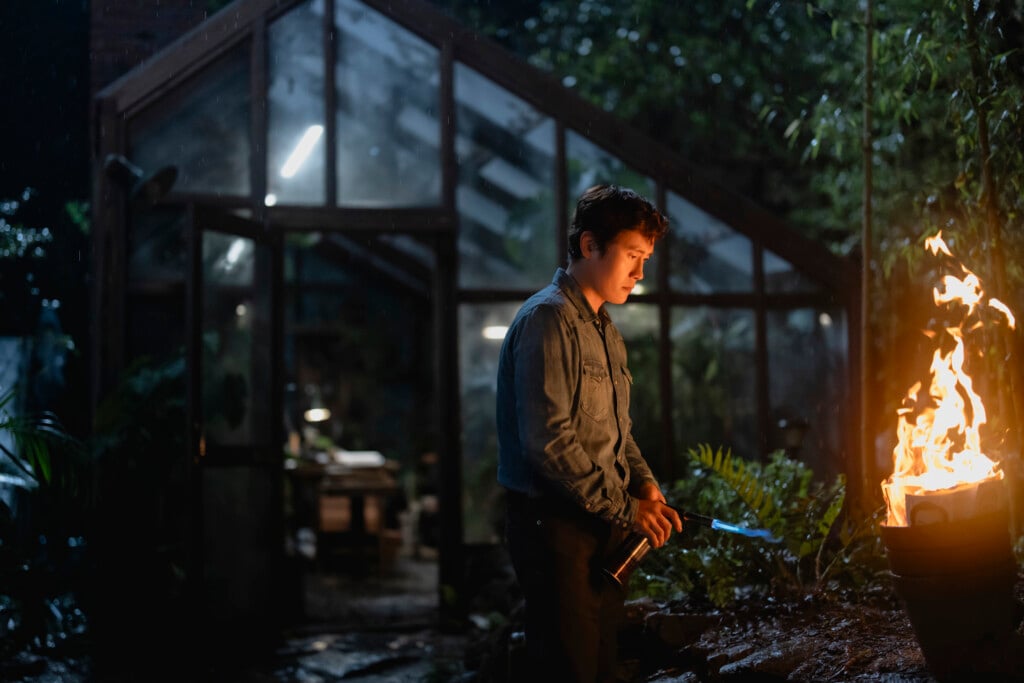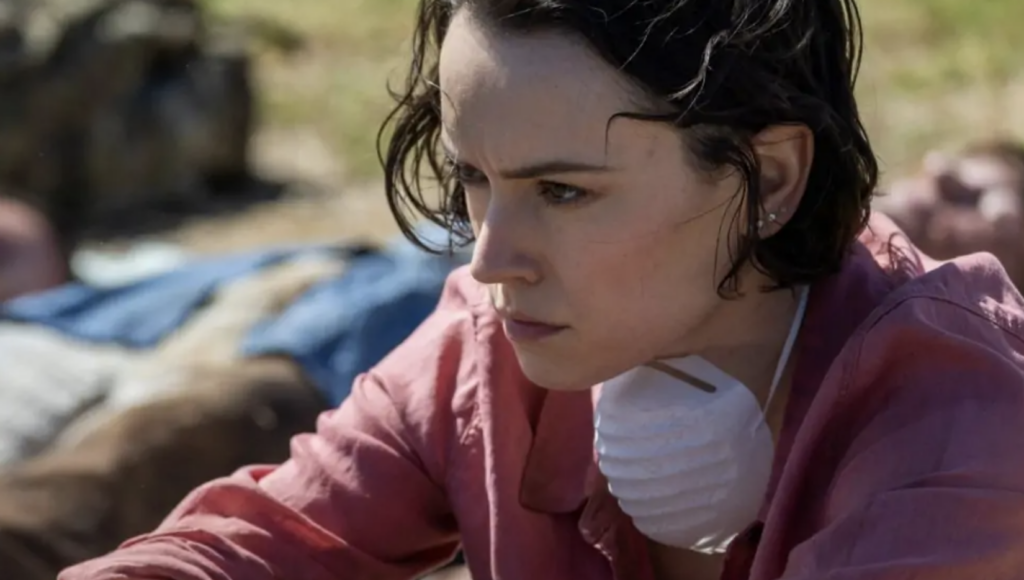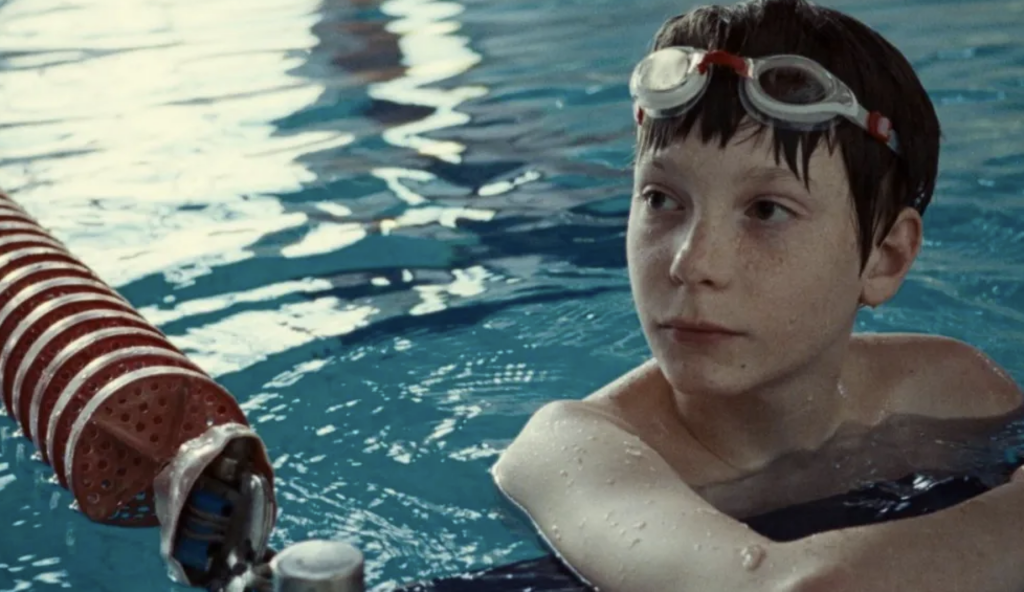Timestalker is a disappointing second feature from Prevenge triple-threat Alice Lowe
Out on VOD just in time for Valentine's Day.
Comedian, actress and emerging filmmaker Alice Lowe hits something of a sophomore slump with Timestalker, a gory, goofy time-spanning adventure out now on VOD that combines elements of Monty Python, Time Bandits, and Lowe’s professed love for Neil Jordan’s 1984 cult classic The Company of Wolves.
Visually, it’s a lot of fun, and boasts some committed performances from the cast. In terms of staying power, it unfortunately lacks the sharp, singular quality that Lowe’s first feature, 2016’s Prevenge (about a woman who carried out murders at the behest of her unborn baby) had oodles of.
Lowe—who, as with Prevenge, also wrote the film—plays Agnes, a hapless heroine doomed across lifetimes to fall in love with the wrong guy. That guy is Alex (Aneurin Barnard), who by turns uses, avoids, ignores and seeks protection from Agnes. No matter what century, Agnes meets Alex, tries to be with him, and faces a significant—often fatal—hurdle in the form of George (first a dog, later Nick Frost), who’s determined to have her.
A potential real connection exists in Agnes’ friend Meg (Tanya Reynolds), who wants to be more than just pals. All of this is witnessed and sardonically commented on by Scipio (Jacob Anderson), an all-knowing being who wants Agnes to break the cycle, but is also highly amused every time she gets it wrong.
Timestalker starts in Puritan England and spans eras to the 1980s, with a brief stop in the far future, allowing lots of period setpieces that make creative use of a small budget. That creativity, and the vignette-y nature of the plot (along with a few strategically-placed uses of soft-focus camera) are this film’s biggest artistic ties to The Company of Wolves.
That movie, a favorite of Lowe’s, similarly featured dreamy visuals that made ingenious use of limited resources. Here, that perspective shows up in a couple of scenes, including a Georgian-era ball where the elaborate costumes and props make up for the lack of a set, and in fact make the whole thing feel more surreal. A later scene at a wedding reception directly references a similar scene in Jordan’s film.
The film’s supporting cast throws themselves into the utterly goofy material, particularly Frost, who seems to relish playing variations on a gross creep.
The biggest standout, however, is Anderson. He exudes confidence and sly hilarity as Scipio, particularly in the 80s section, where he plays the utterly done manager of Barnard’s fading pop idol, the object of Lowe’s character’s obsession. It’s a performance that makes you realize Anderson’s been wasted in his post-Game of Thrones career and deserves to be in more projects that give him wide exposure (or at the very least it’ll make you want to seek out the AMC+ Interview with the Vampire series as soon as possible).
The 80s story is also where the film’s underlying messaging gets muddied. Lowe’s Agnes appears to be an upwardly mobile career woman who falls in love with Alex, an Adam Ant-styled rock star, and is also in danger from her gross neighbor/stalker, Frost’s George. However, the longer the story goes on, we realize that Alex may have genuine cause to be afraid of Agnes, and Agnes’ behavior puts the actions of her previous incarnations in an unpleasant new context.
The resulting revelation is darkly funny, but given that Timestalker ends on a more liberating message of self-fulfillment, it’s a self-sabotaging move that makes the audience (rightly) question where Lowe wants us to land.
Timestalker is an interesting visual exercise, but its lack of clarity and seeming disdain for its own main character keep it from making the impact it could. A few standout turns and interesting design and shooting choices keep things fun, but otherwise much of the humor feels disappointingly uninspired. It’s worth checking out for Lowe’s riffs on The Company of Wolves, but doesn’t make much of an impact on its own.
Given that we know this talented writer-director is capable of more, that’s a bit of a letdown.







